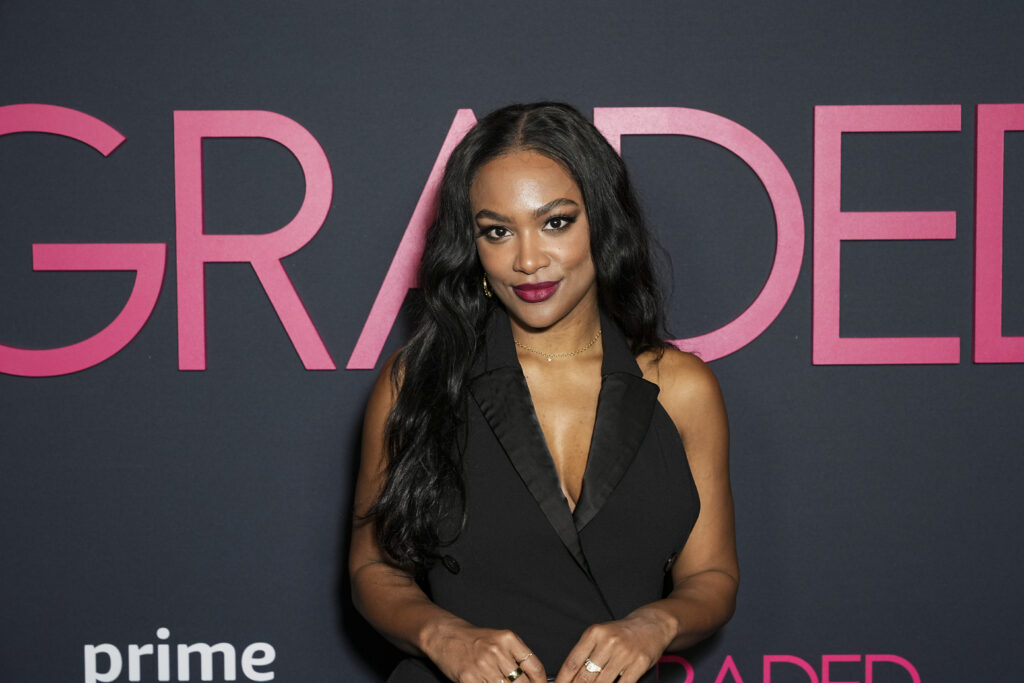When she was not wearing braids as a young girl, Jordan Emanuel pampered her thick, long hair with a roller set and blowout. It was her go-to style at the hair salon.
Leaving her hair to the professionals was Emanuel’s way of keeping her hair healthy, strong, and, most importantly, done. Frequent trips to the salon were routine for her growing up. With the thickness and fullness of her hair, doing it herself was not an option. After a while of getting the same hairstyle, she wanted to switch it up. Instead of her usual style, Emanuel recalled being in fifth grade when she first permed her hair.
Perms, or hair relaxers, are chemical treatments that change a person’s hair texture from curly to straight or vice versa. While primarily used as a straightening tool, it can cause significant damage to the hair and scalp during and after the process. At the time, Emanuel didn’t realize the lasting effects her first perm would have on her hair.
“My long, full hair I always had started getting shorter and wouldn’t grow,” Emanuel told 21Ninety. “My hair was always strong and full, but it wasn’t as full or long.”

Later, Emanuel was diagnosed with alopecia. The National Institute of Arthritis and Musculoskeletal and Skin Diseases defines the condition as “a disease that happens when the immune system attacks hair follicles and causes hair loss.” The effects of alopecia varies depending on the person. Some have multiple flare-ups throughout their lives, while others only have one episode.
As Bravo’s newest reality star, Emanuel opened up about her journey dealing with alopecia. In recent episodes of “Summer House: Martha’s Vineyard,” fans watch as Emanuel battles with significant amounts of hair loss. Coupled with sharing her struggles with her other housemates, the ongoing journey for Emanuel has been far from easy.
Despite the changes in her hair length and fullness growing up, Emanuel continued perming her hair until college. At one point in her college years, she noticed a minor outbreak that resulted in a tiny bald spot near the front of her head. Unsure if it was from her use of perms or stress, Emanuel did not give it much thought. She didn’t realize it could potentially be a bigger issue. Instead, she turned to wigs to cover the hairless area. Within six months, her hair grew back.
She noticed the health of her hair reverted to the fullness and strength she once had. Taking a break from perms to wear her hair in its natural state was the remedy she needed to heal years worth of damage and breakage from the straightening chemicals. That all changed in 2018 when the reality star had an intense reaction after getting a relaxer for a job.
“My hair has never been the same since,” she revealed.
After spreading the relaxer, Emanuel felt a quick burning sensation, which caused her to immediately remove the perm from her hair. After washing the product out, the scabs that formed on her scalp soon started balding.
Burns are one of the several risks associated with perms. The product’s formula, ingredients, scalp sensitivity and allergic reactions are contributing factors. The lasting side effects of a chemical burn on the scalp include sores, inflammation, thinning, breakage and dryness.
Emanuel’s hair growth was slim after that traumatic experience. While the hair thinning was unsurprising, her concerns grew when she saw that portions of her scalp were bald. She went to a dermatologist two months later, where the doctor confirmed that Emanuel’s hair loss, which had been occurring recently and throughout the years, was alopecia.
There are several types of the autoimmune disease that can attack the body in different ways. Black women are more prone to developing traction alopecia, which is caused by heat, chemicals and wearing tight hairstyles. A 2020 report from healthcare company Allina Health estimated that anywhere between a third to half of all Black women experience a form of hair loss during their lifetime. Common causes of hair loss are genetics, hormonal changes and stress.
Emanuel can’t recall her reaction to the official diagnosis, but she said it was not surprising to hear. It made sense with her symptoms. For her, the hardest part of living with alopecia is the cycle of outbreaks that come with it.
“I’ll have so much progress where it’s like my full hairline is almost back, but now the spots are coming back gray,” she said. “Or, the spots will come back when I’m ready to wear my hair out. Then, immediately, I feel tenderness happening again, and my hair rapidly sheds.”
For some, alopecia outbreaks may be gradual thinning or patchy bald spots. On the other hand, others could have hair loss in clumps and develop receding hairlines. The constant physical changes the autoimmune diseases have on a person’s appearance can bring out a whirlwind of emotions.
On the show, Emanuel openly shares her struggles with alopecia with the fans. She isn’t afraid to show her struggles with alopecia and told 21Ninety she was in the middle of having an outbreak during filming.
“That was the worst flare-up I had in years,” Emanuel said.
Emanuel’s Vulnerability Touches Viewers and Amplifies Reality of Alopecia
Emanuel’s experience shows the intricate relationship that exists between Black women and their hair.
Often described as a “crown,” the roots run deep for Black hair. Black hair is the centerpiece of political movements, cultural significance and personal power. From Black people forcefully had their heads shaved as a tactic to strip away their identity to the recent revivals of the Natural Hair Movement, Black hair is as personal as it is political. As a result, hair loss can be a jarring experience among Black women and women of color.
While other reality stars choose which parts of their lives to disclose, Emanuel decided to be upfront about what she was going through.
“When I went into this experience, I always felt like I wanted to be honest,” she said. “I didn’t know how else to be on a reality show without being 100 percent real and myself.”
Her vulnerability touched viewers in a way that does not happen often in the reality TV universe. Cast members are somewhat expected to experience the aftermath of social media trolls and online hate while the show airs. In Emanuel’s case, however, the response from audiences has been positive.
“I’m taken aback about how many people are affected by hair loss,” she said. “It made me realize how little we have conversations about it because people are dealing with it in silence.”
Emanuel’s vulnerability opened the door for her to connect with viewers, who exchanged private messages about their experience.
“It’s been really rewarding,” she said. “There are obviously those people who take those same five minutes of screen time and make it nasty and mean. It definitely combats that and makes it worth it.”
